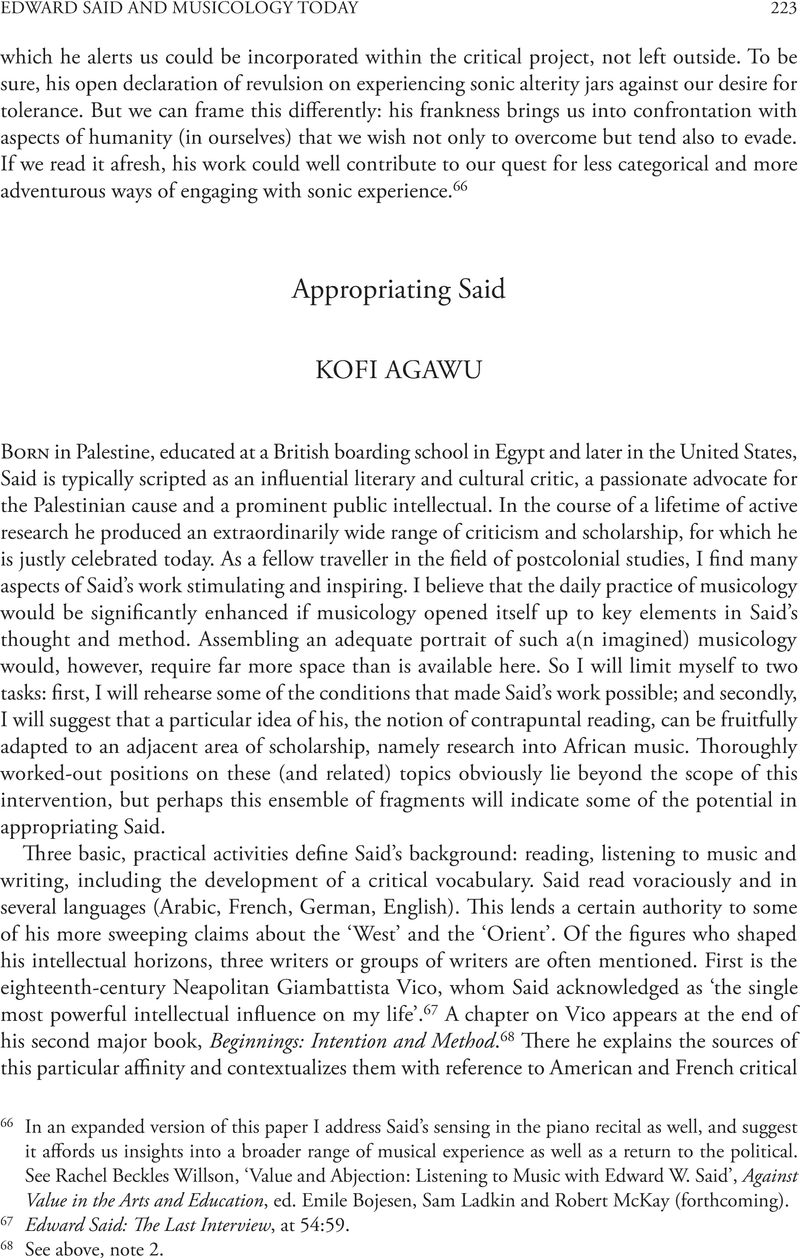No CrossRef data available.

67 Edward Said: The Last Interview, at 54:59.
68 See above, note 2.
69 Edward Said: The Last Interview, at 55:25.
70 Edward W. Said, Joseph Conrad and the Fiction of Autobiography (Cambridge, MA, 1966).
71 See for example, Vladimir Jankélévitch, Fauré et l'inexprimable (Paris, 1974).
72 See Gary Tomlinson, Music in Renaissance Magic: Toward a Historiography of Others (Chicago, IL, 1993); Carolyn Abbate, ‘Jankélévitch's Singularity’, in Vladimir Jankélévitch, Music and the Ineffable, trans. Abbate (Princeton, NJ, 2003), xii–xx; and Stephen Rumph, Mozart and Enlightenment Semiotics (Berkeley, CA, 2012).
73 Michael Wood, ‘On Edward Said’, London Review of Books, 25 (2003), 5.
74 See my review of Musical Elaborations in ‘Wrong Notes’, Transition, 55 (1992), 162–6.
75 For a contrasting appraisal, see Rose Rosengard Subotnik's review of Musical Elaborations in Journal of the American Musicological Society, 46 (1993), 476–85.
76 Rajagopalan Radhakrishnan, A Said Dictionary (Oxford, 2012).
77 F. Abiola Irele, ‘Editorial: The Landscape of African Music’, Research in African Literatures, 32 (2001), 1–2 (p. 1).
78 Brent Hayes Edwards, ‘The Sound of Anticolonialism’, Audible Empire: Music, Global Politics, Critique, ed. Ronald Radano and Tejumola Olaniyan (Durham, NC, 2016), 269–91.
79 See, for example, Marius Schneider, Geschichte der Mehrstimmigkeit, 2 vols. (Berlin, 1934–5), i: Die Naturvölker.
80 See, for example, John Blacking, Venda Children's Songs: A Study in Ethnomusicological Analysis (Johannesburg, 1967).
81 Notable examples include Jay Rahn, A Theory for All Music: Problems and Solutions in the Analysis of Non-Western Forms (Toronto, 1983); Analytical Studies in World Music, ed. Michael Tenzer (New York, 2006); and Mark Hiljeh, Towards a Global Music Theory: Practical Concepts and Methods for the Analysis of Music across Human Cultures (Farnham, 2012).